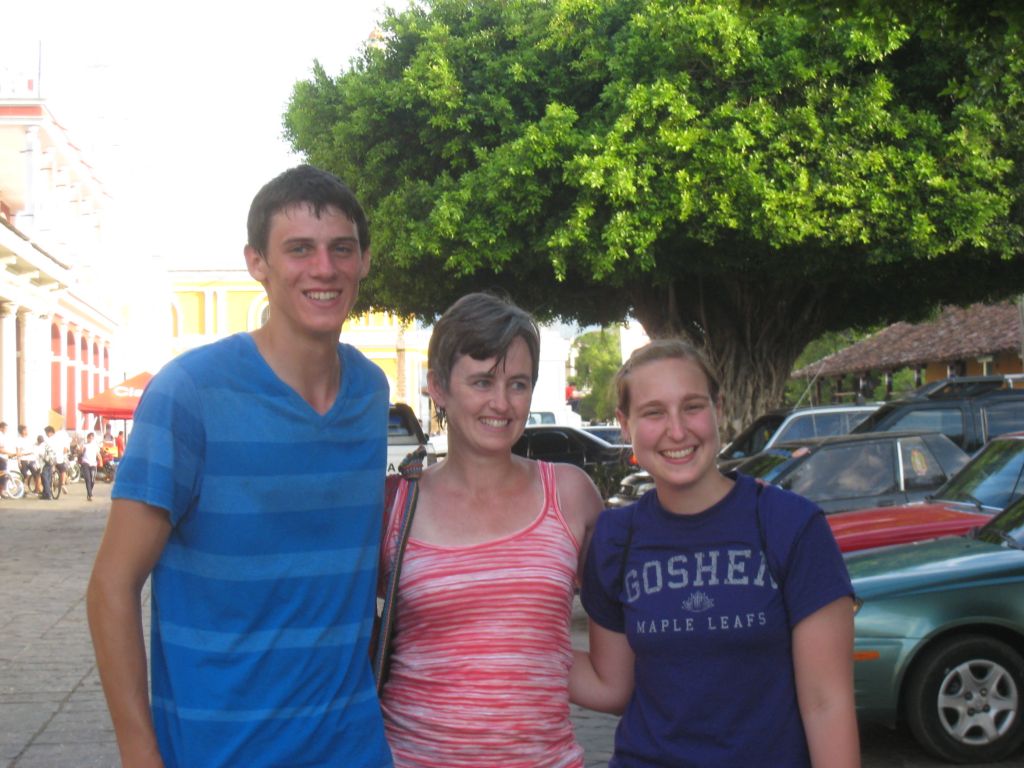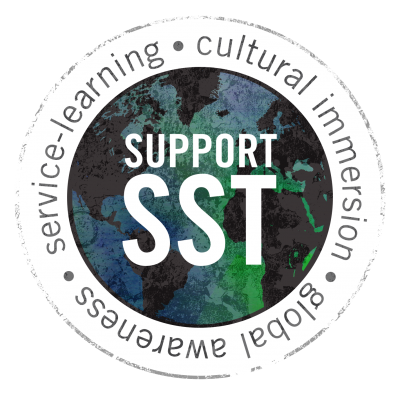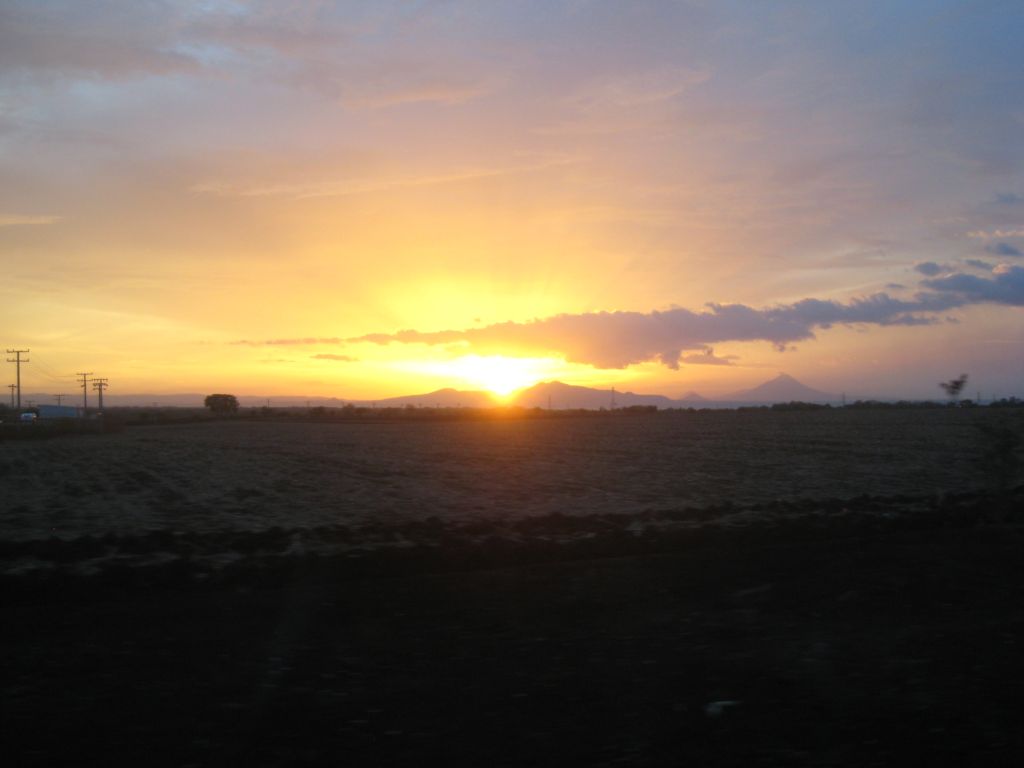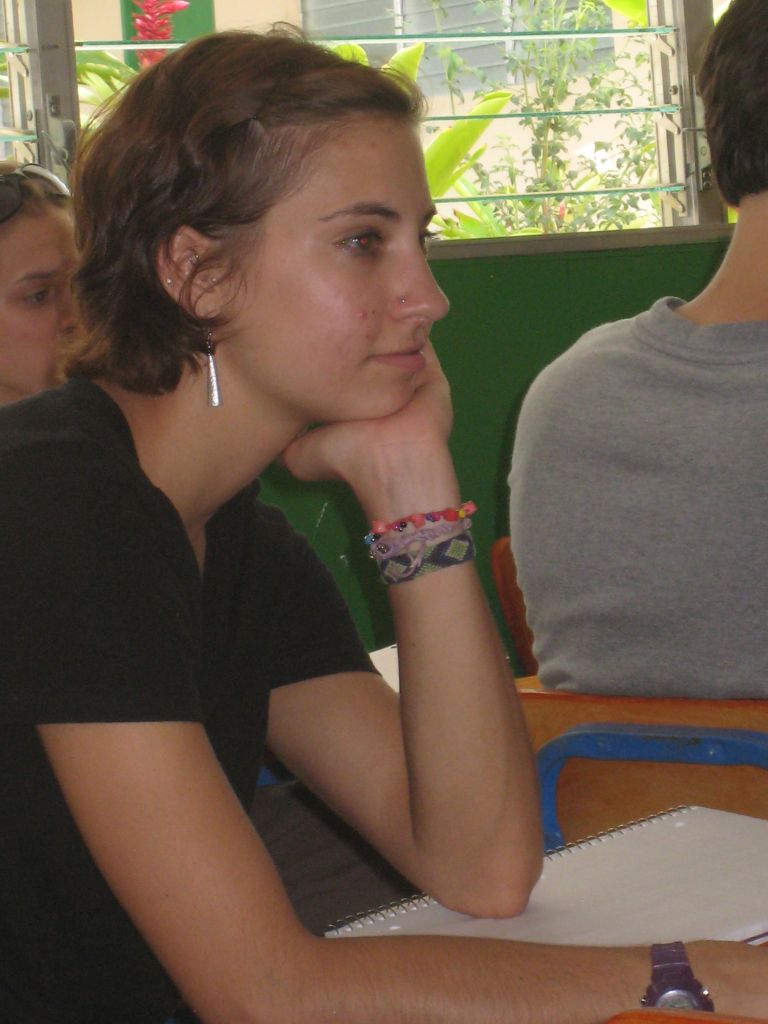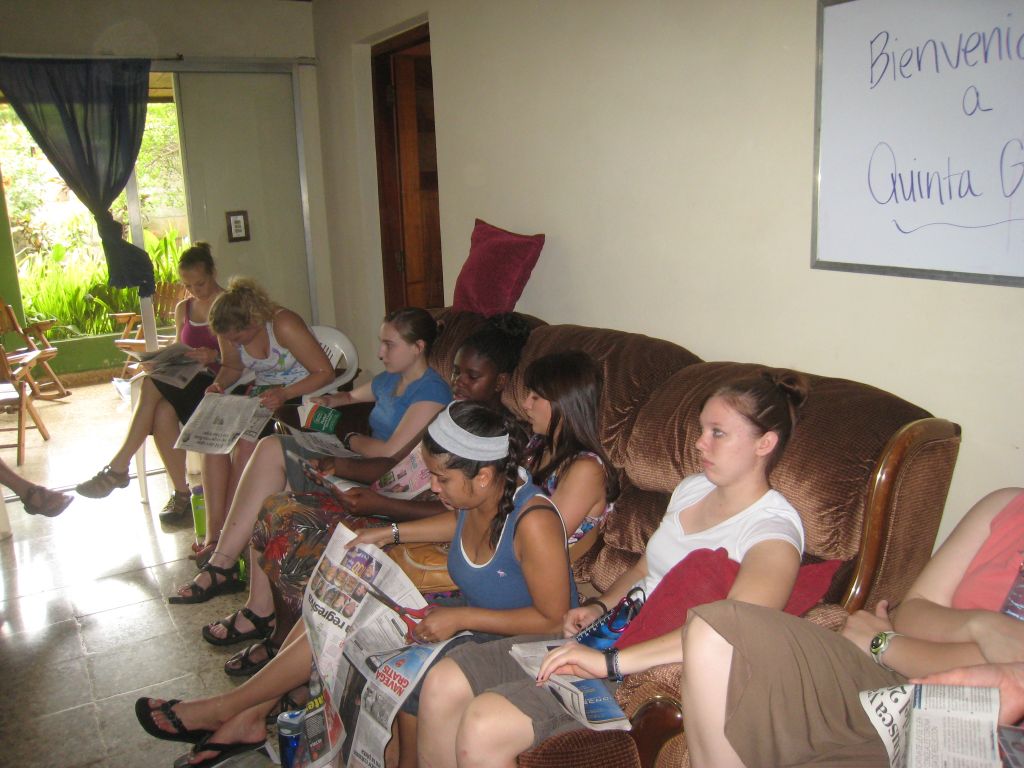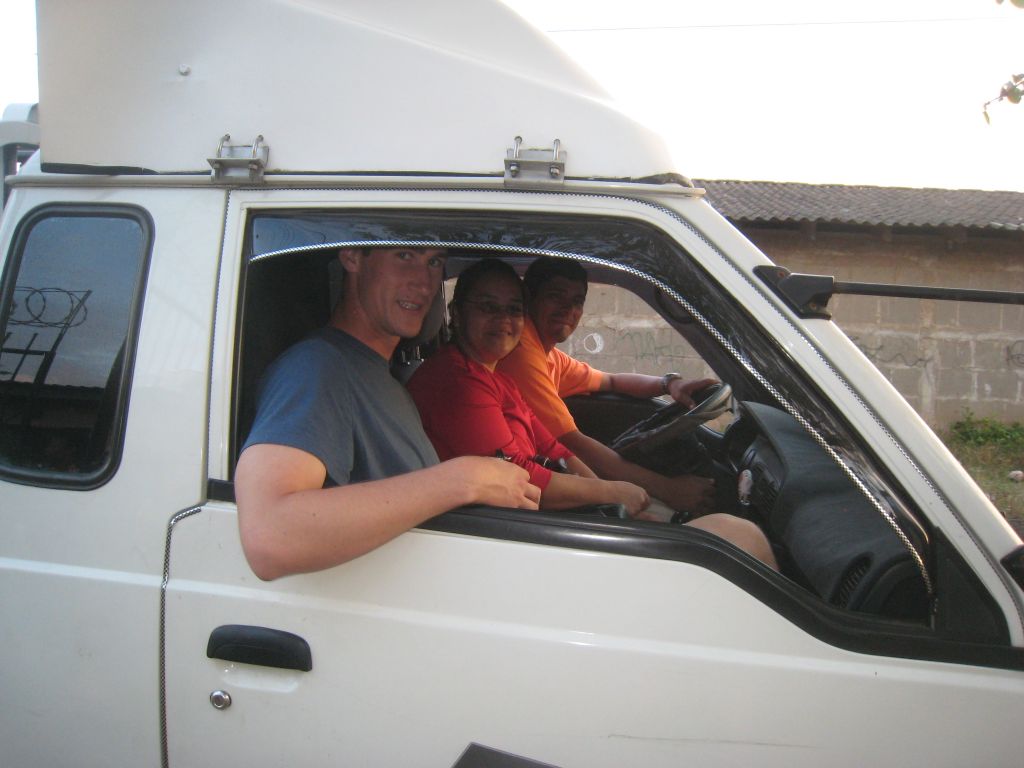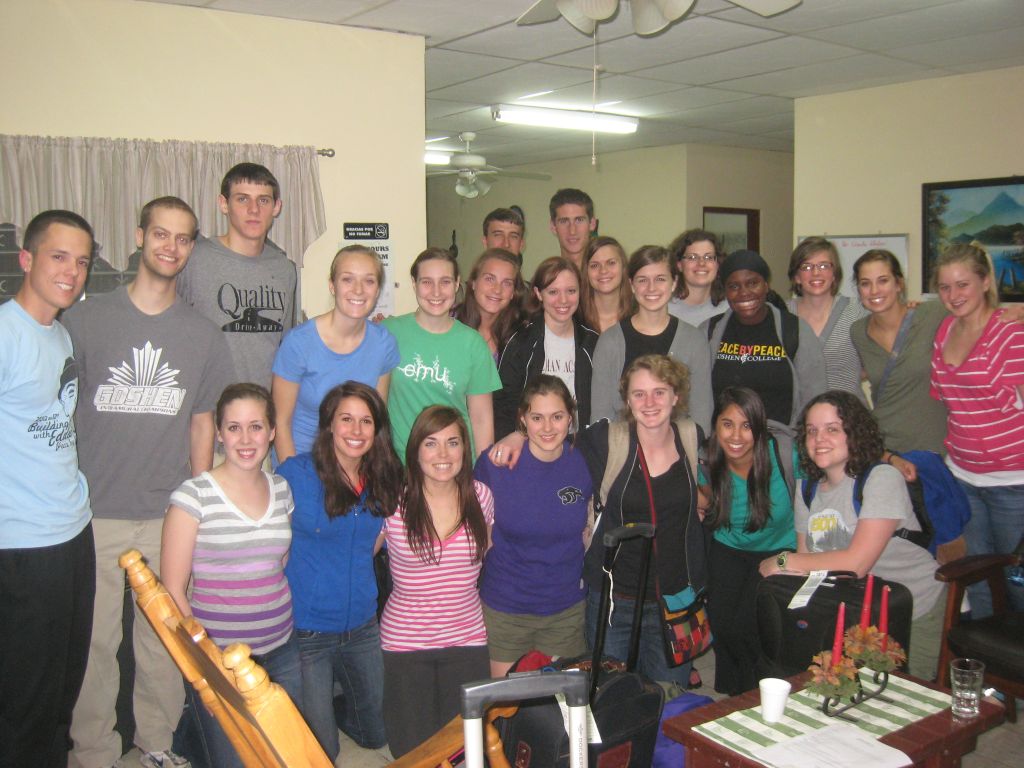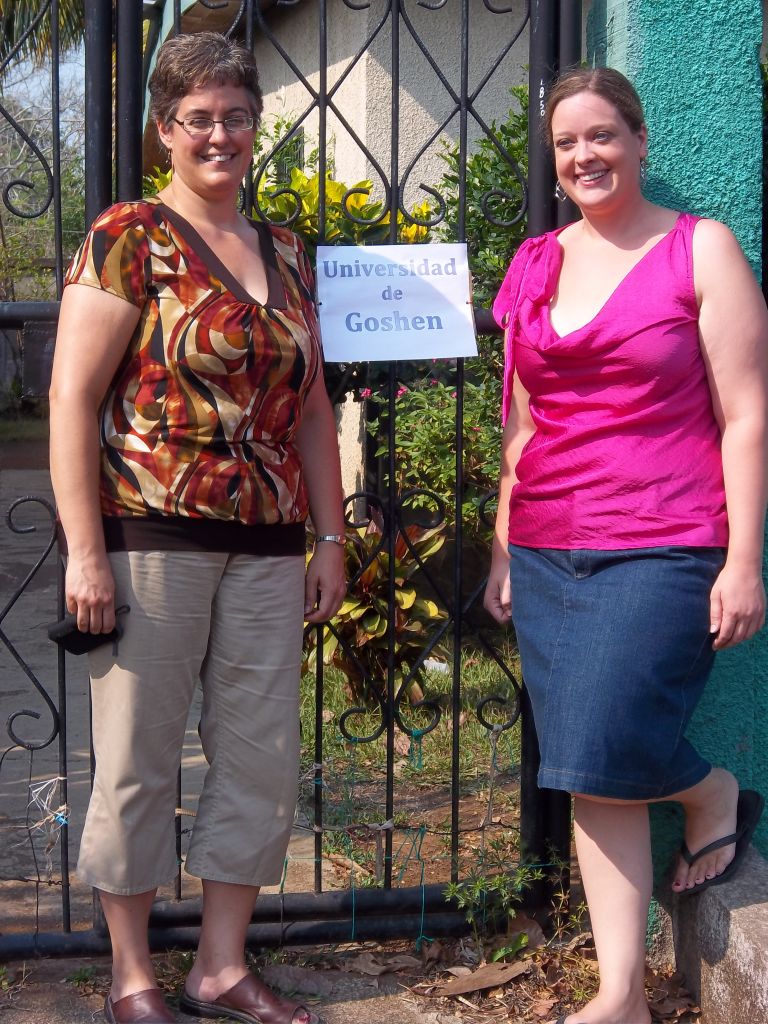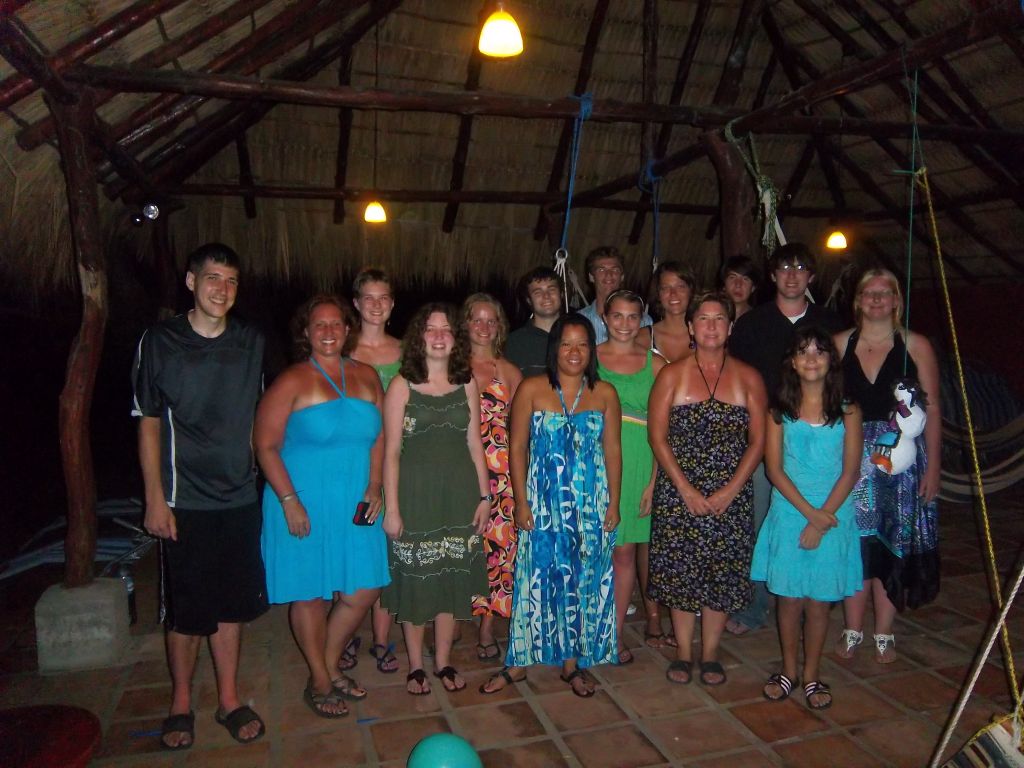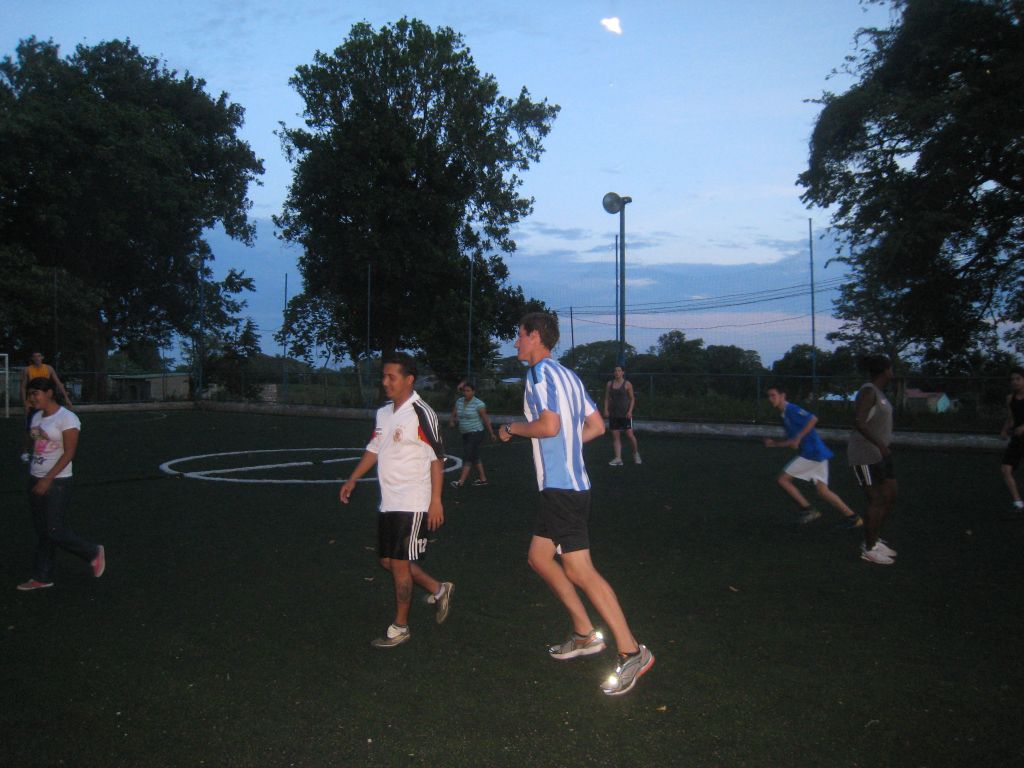
Learning about Education, Religion, and Women's Issues
Our afternoon charlas (chats) this past week have discussed the Nicaraguan educational system, religion - specifically liberation theology, and issues for women in Nicaragua.
We learned some sobering statistics from Ivette Fonseca, an educator and consultant on educational issues. Education is required only through the 4th grade in Nicaragua. This creates many challenges, especially because many poor families don't understand the value of a good education. Nicaragua has a flexible school year, so students can start anytime throughout the year, but this makes it very challenging for teachers. Also, more rural students often miss several days of school each week during the harvest season because they are needed by their families to help with work. Students needing to repeat grades and those that drop out of school and re-enter create the issue of more than 50% of students being in lower grades than their age would suggest. Teacher salaries are also low, which creates little incentive to become a teacher. Nicaragua has many challenges ahead in providing quality, affordable education for all it's young people, but also has many people working on addressing the issues.
